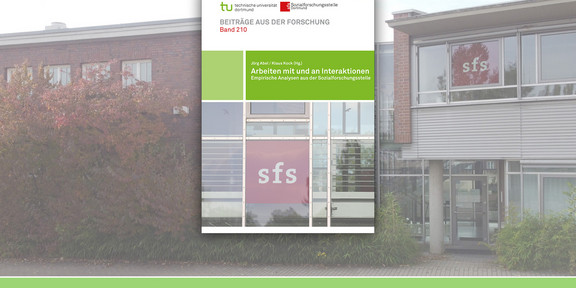"Working with and on Interactions": New research volume available
- News

Compared to industrial work, service work is characterised by the fact that in addition to the company and its employees, consumers are directly involved as a third party. No finished product is sold, rather customers, clients and patients already intervene in the process of creating the service. They have a say in what the service ultimately consists of and how it comes about. An inherent part of service work is therefore interaction with those who commission and consume it. This applies all the more to personal services, in which the consumers themselves become the object of the work. In this context, the actors move in an economic environment, i.e. their interactions always include disputes about an appropriate relationship between price and service.
This results in specific requirements for employees in interactive service work: They must be able to establish cooperative relationships with the respective consumers in order to successfully carry out the process of service production together. The service providers should be able to deal with their emotions in such a way that the relationship with the clientele is at least not disturbed, if possible even promoted. In turn, the customers' feelings should be positively influenced, because satisfaction is an essential criterion for the success of a service. Finally, employees are required to use their subjective abilities of empathy, sensual perception and improvisation to cope with the imponderables of the respective situation and the peculiarities of the clients involved.
The three research projects from the Social Research Centre presented in the following essays each address a particular aspect of interaction work. They are funded within the framework of the funding announcement "Future of Work: Working on and with People" by the BMBF and with funds from the ESF. The overarching aim of this funding is to gain a better understanding of the requirements of interaction work and ways of meeting them. Furthermore, the social recognition of interactive work, which is sometimes associated with high work demands and stresses, is to be improved. The essays are intended as contributions to the scientific discussion about interactive work as well as to the development of practical approaches to a humane work design.
Download




![[Translate to English:] [Translate to English:]](/storages/zentraler_bilderpool/_processed_/a/f/csm_Kontakt_b86e8d8ecc.png)

